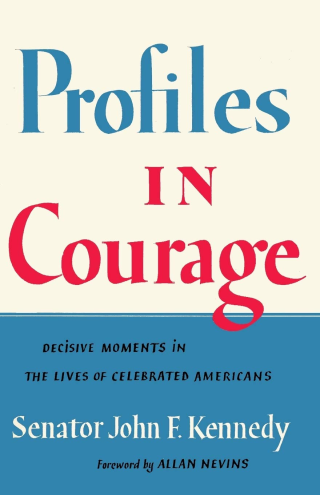Three of Kennedy’s eight Senate heroes were slaveholders. None won inclusion in the pantheon for having taken what we’d now think of as a lonely liberal stand. Taft’s courageous act was opposing the Nuremberg trials for the members of the Nazi high command, because they had not broken any German law; he preferred that they be put in a Napoleon-like exile in some remote place. “These conclusions are shared, I believe, by a substantial number of American citizens today,” Kennedy asserted. Daniel Webster’s was breaking with anti-slavery opinion in his home state of Massachusetts to support the Compromise of 1850, which included the Fugitive Slave Act, making it a federal crime for Northerners to give shelter to escaped slaves. For Webster, Kennedy noted admiringly, “the preservation of the Union was far dearer to his heart than his opposition to slavery.” John C. Calhoun, the most influential pro-slavery politician of the nineteenth century, didn’t get a full-dress profile, but Kennedy included him in a chapter devoted to senators who almost made the cut, and mentioned him throughout the book, always with the greatest respect, as, for example, “that revered sage of the South.” Not long after “Profiles in Courage” was published, Kennedy chaired a committee charged with choosing five outstanding senators in American history. Calhoun, Taft, and Webster were all on the list. One can guess from this sentence where the Kennedy of that moment would have stood on the question of the South’s continuing to honor the Confederate flag: “Surely in the United States of America, where brother once fought against brother, we did not judge a man’s bravery under fire by examining the banner under which he fought.”
Courage is a quality that can be deployed toward many different ends. Kennedy defined courage in a U.S. senator as a willingness to take a stand that is unpopular with one’s constituents and the leadership of one’s party, in service of a larger, higher cause. But what cause? For Kennedy in the mid-nineteen-fifties, it wasn’t anything in the range of what we’d now regard as social justice, especially racial justice. Something else was at the top of the list of moral absolutes for him: maximizing the national power, wealth, and influence of the United States. In the early nineteenth century, it was crucial to expand the territory under American control. Then it became necessary to postpone the Civil War, through compromises like the one Webster supported, until the North became populous and economically powerful enough to defeat the South. After 1865, reconciliation between the former Confederacy and the Union was essential. At the moment when Kennedy was writing, the height of the Cold War with the Soviet Union, he claimed, “only the very courageous will be able to take the hard and unpopular decisions necessary for our survival in the struggle with a powerful enemy.” Kennedy consistently dismissed political reformers who, by his lights, failed to understand the primacy of the national interest. Abolitionists were an example. “Compromise need not mean cowardice,” Kennedy declared, as long as it served what he—wholly in accord with the liberal-centrist conventional wisdom of the time—considered to be a higher purpose. That was why he chose so many compromisers on racial justice as his exemplars of courage.
